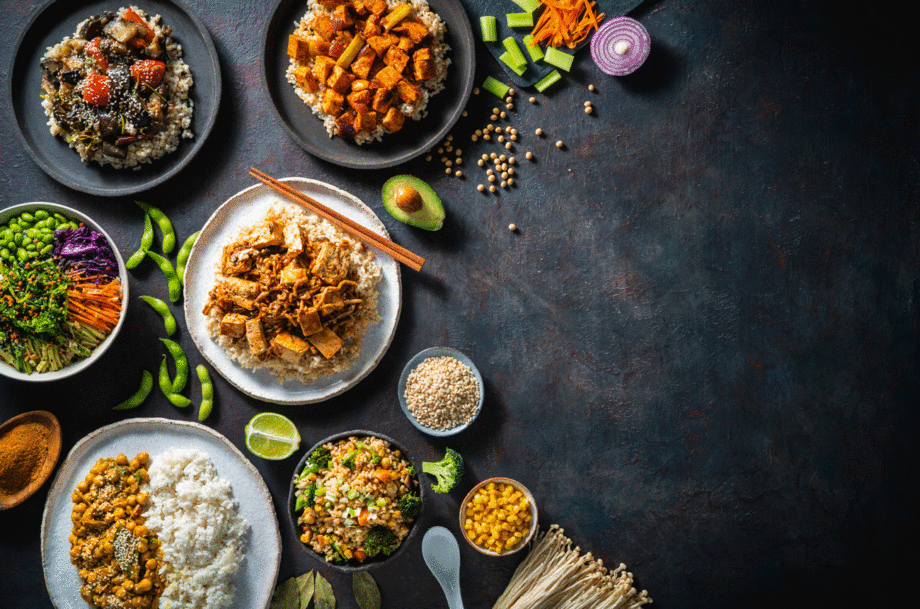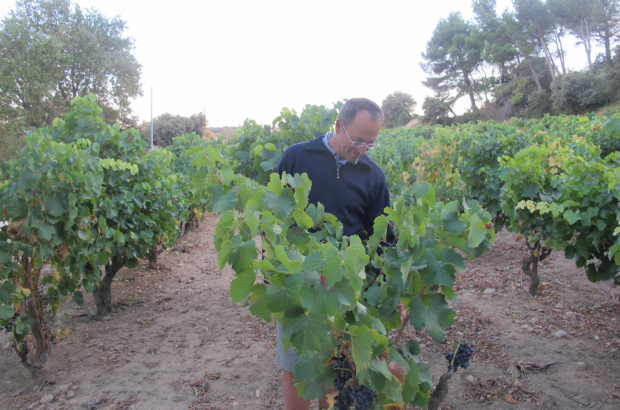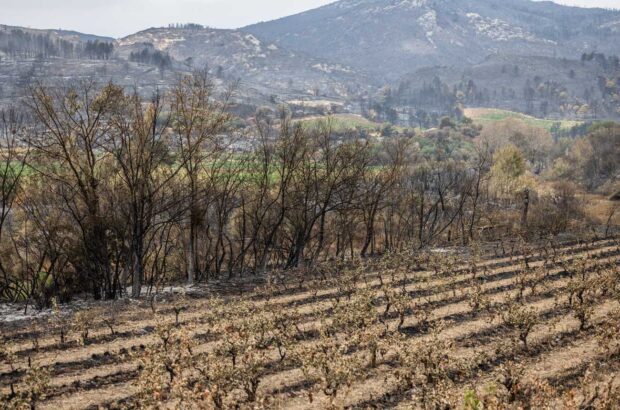In an era of diet-related health concerns, heightened awareness of cruel or unsustainable farming methods and a demand for more inclusivity and representation in every industry, there is a case to be made that plant-based tastes should be reflected more widely in the world of fine wine.
Getting outside the box
Fear of the unknown, techniques drilled in cooking school and confusion over what vegan food actually is, have deterred chefs from becoming ‘culinary explorers’, says Miyoko Schinner, a Marin County, California-based award-winning vegan chef, cookbook author and entrepreneur who founded global vegan cheese brand, Miyoko’s Creamery.
‘If people can just get out of that box where there’s got to be some kind of meat, you really are opening yourself up to so many new possibilities.’
Schinner regularly hosts winemaker dinners, tastings and cooking classes that highlight these possibilities. Such events have featured courses such as roasted vegetable timbale with tomato confit, paired with Merlot; zucchini carpaccio with raspberry ume sauce, paired with Sauvignon Blanc and honeynut squash and spinach ‘ricotta’ soufflé, paired with Chardonnay.
The approach has attracted attention from the highest echelons of the food world.
Schinner recalls a conversation with fellow Bay Area chef Dominique Crenn, of the three Michelin-starred restaurant Atelier Crenn, who has gradually reduced the use of animal products in her restaurants over the years.
‘She is finding that as she explores plants, she’s thinking about food in a way that she never did before and she’s getting excited because she’s discovering all these things she can do. So it’s a point of growth for her, and a point of growth for any chef, rather than simply trying to figure out how to cook chicken 10 different ways,’ Schinner says.
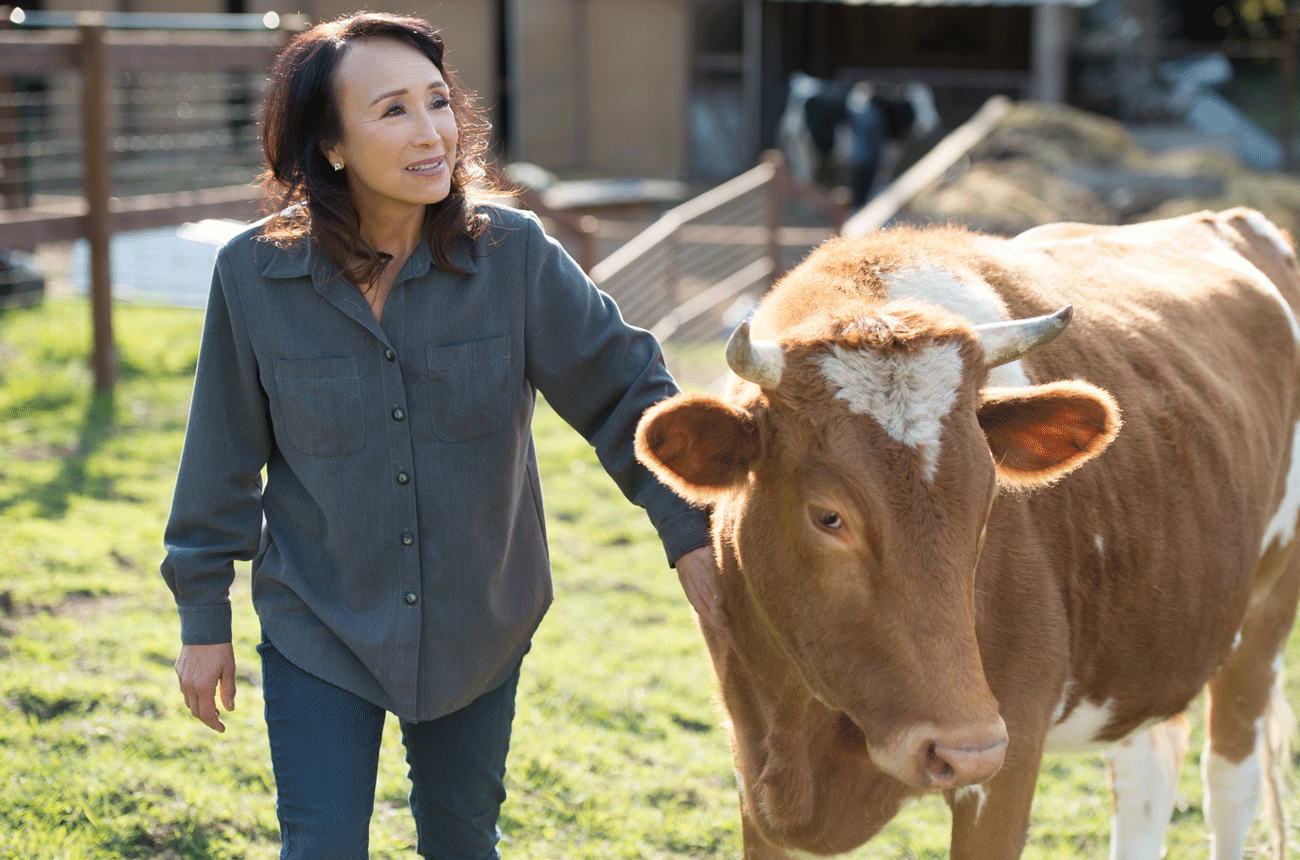
Miyoko Schinner with Angel the cow. Courtesy: Miyoko Schinner
Challenging conventions
Drew Brady, wine director for Overthrow Hospitality, the plant-based restaurant group in New York City he co-founded with James Beard-nominated restaurateur Ravi Derossi, says there’s ‘a blind spot’ with conventional food and wine pairings. Many restaurants, chefs and wine-centric experiences, he says, ‘haven’t been challenged to think another way yet’.
This has to do with ‘what we think luxury is and how it equates to prestige. These kinds of foods that you typically see in pairings, foie gras and triple-aged-this-and-that, they’re just shorthand for indulgence,’ Brady says. ‘Especially for those that position themselves in the fine wine space, I think it’s muscle memory.’
Three of Overthrow’s eight brands have earned Michelin nods for their elevated plant-based cuisine, beautiful interiors, service and tightly-curated wine selections that skew light and low-intervention. The group’s mission, Brady says, is based on animal rights, concern for the environment, and redefining famously toxic restaurant culture, with interesting parallels to the mistreatment of farm animals, such as the force-feeding of geese for foie gras, for example.
‘I have worked for abusive management since the day I started working. I had no idea that it wasn’t supposed to be that way. The way you allow yourself to be spoken to, and watch others be spoken to and treated, is quite astonishing. I think plant-based cuisine is compassionate. We’re creating a space where guests and employees feel appreciated and celebrated. I think what we’re serving and how we’re serving it aligns with that quite well.’
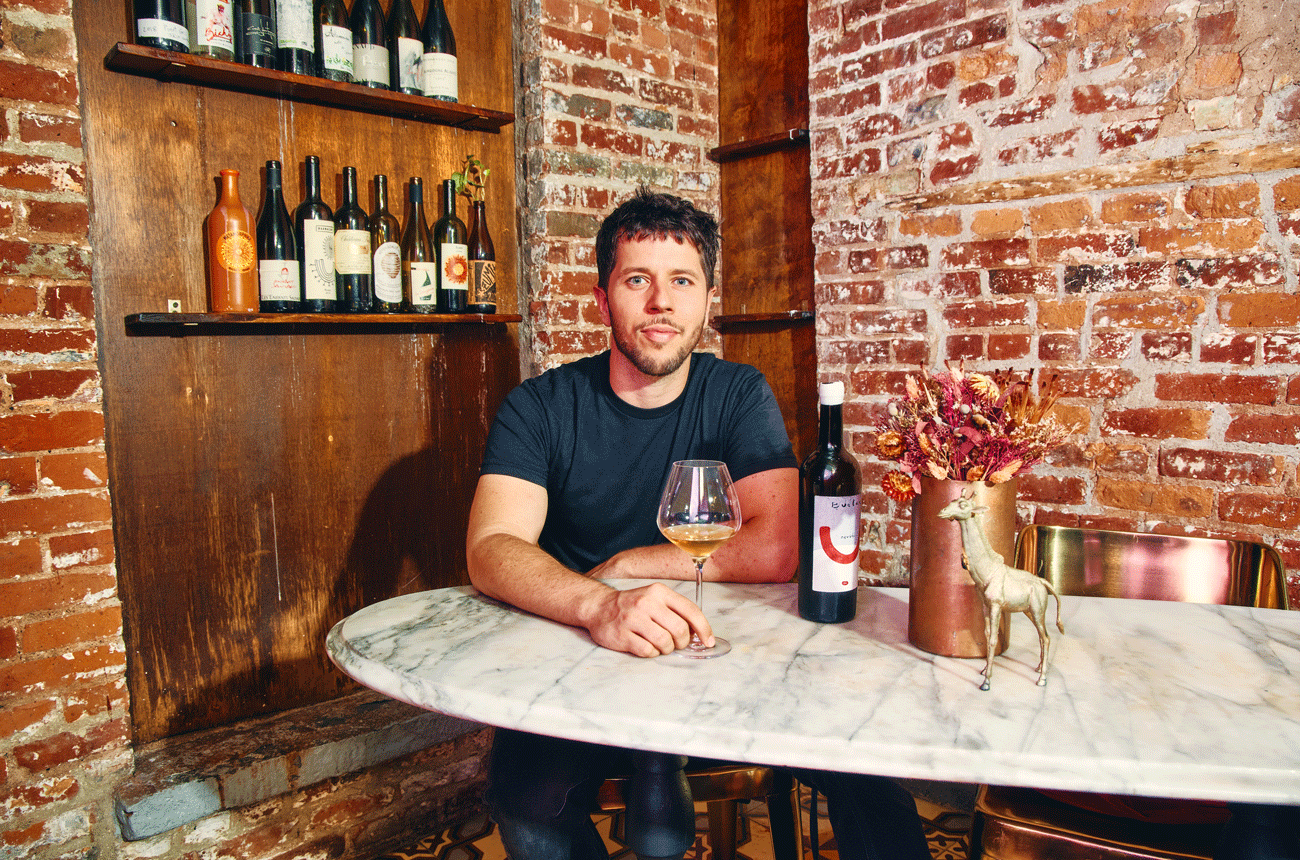
Drew Brady. Credit: Cole Saladino
Being bold with flavours and textures
Alex Price, head of wine at Michelin-starred, vegetable-focused Plates London, says somms don’t make the effort to pair vegan fare with wine because ‘perhaps sommeliers naturally default to the typical frameworks of salt, fat, acid and protein when it comes to pairing, and may view plant-based dishes as “lacking” the typical anchors needed for traditional pairings.
‘However, it’s exactly this challenge that makes pairing plant-based food so exciting, as it forces us to approach flavour, structure and balance very differently,’ Price says, offering an example – one of her favourite pairings at the restaurant.
‘The dish features hay-smoked maitake mushroom, barbecued over Japanese coals and served on a base of black bean mole. It’s topped with spicy kimchi and aioli and finished with puffed rice for texture. This is paired with an English orange wine. The wine’s boldness mirrors the intensity of the dish, standing up to the umami-rich mole and the earthy depth of the maitake. Bringing harmony and cohesion to a dish full of bold, layered flavours.’
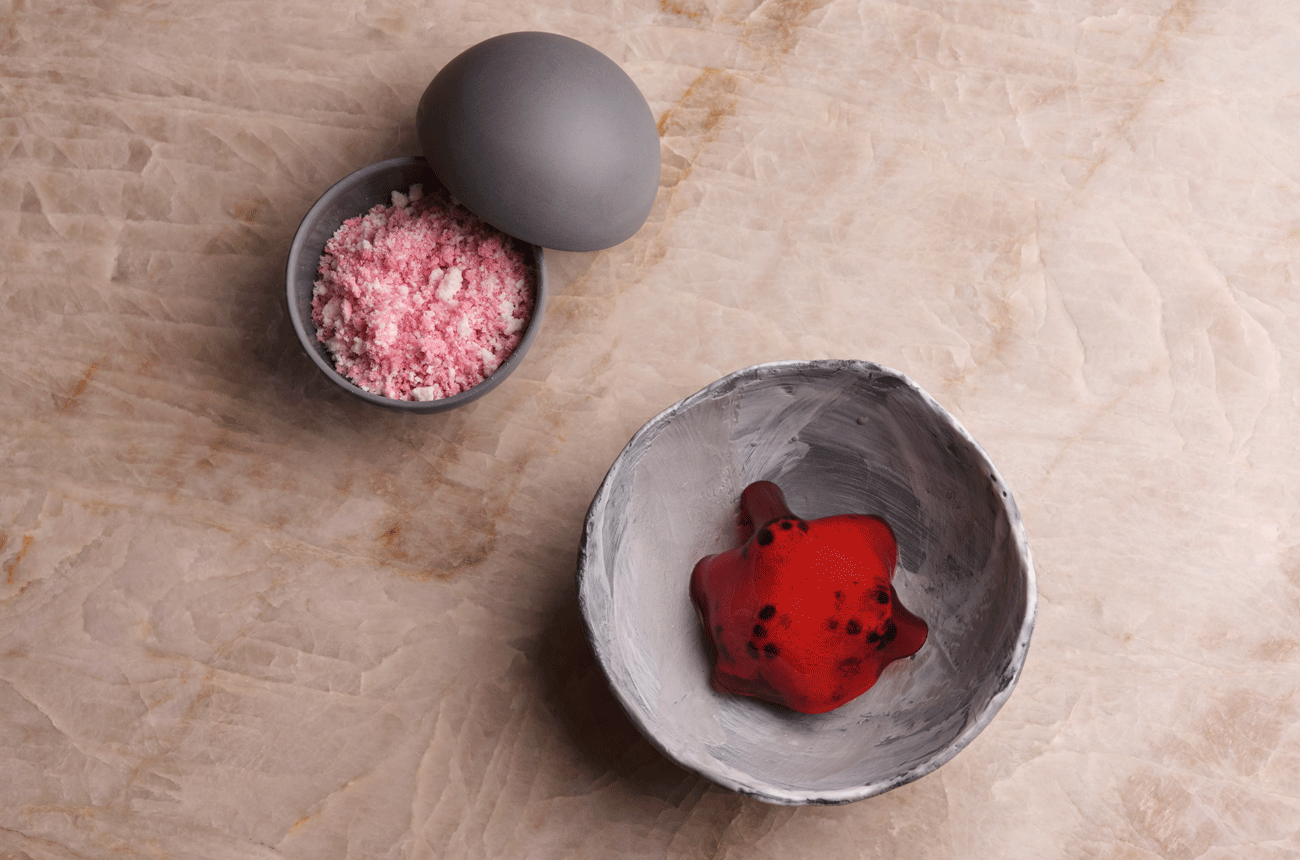
Imaginative vegetarian cuisine from Plates London. Credit: Jodi Hinds
A plant-based future
As the wine industry struggles to attract and retain consumers in an inflation-riddled economy and a culture redefining its relationship with alcohol, offering plant-based options can invite a new, more diverse or health-conscious cohort to discover and delight in wine, says Schinner.
‘People are interested in health, and plant-based options are more interesting than a piece of meat surrounded by celeriac purée,’ she adds. ‘You can do so many more wine pairings. It just makes it far more exciting.’
Brady says vegetable-based cooking offers opportunities for discovery that hook guests and keep them coming back.
‘The amount of times we have had those conversations tableside – “You’re telling me there’s no animal products in this dish at all?” – that’s what that is. You establish a personal connection and you’ve eliminated the stigma in one moment for plant-based or vegan dining right then and there.
‘We want to create restaurants,’ Brady says, ‘for people to come to us not because of what’s missing, but what’s possible.’


